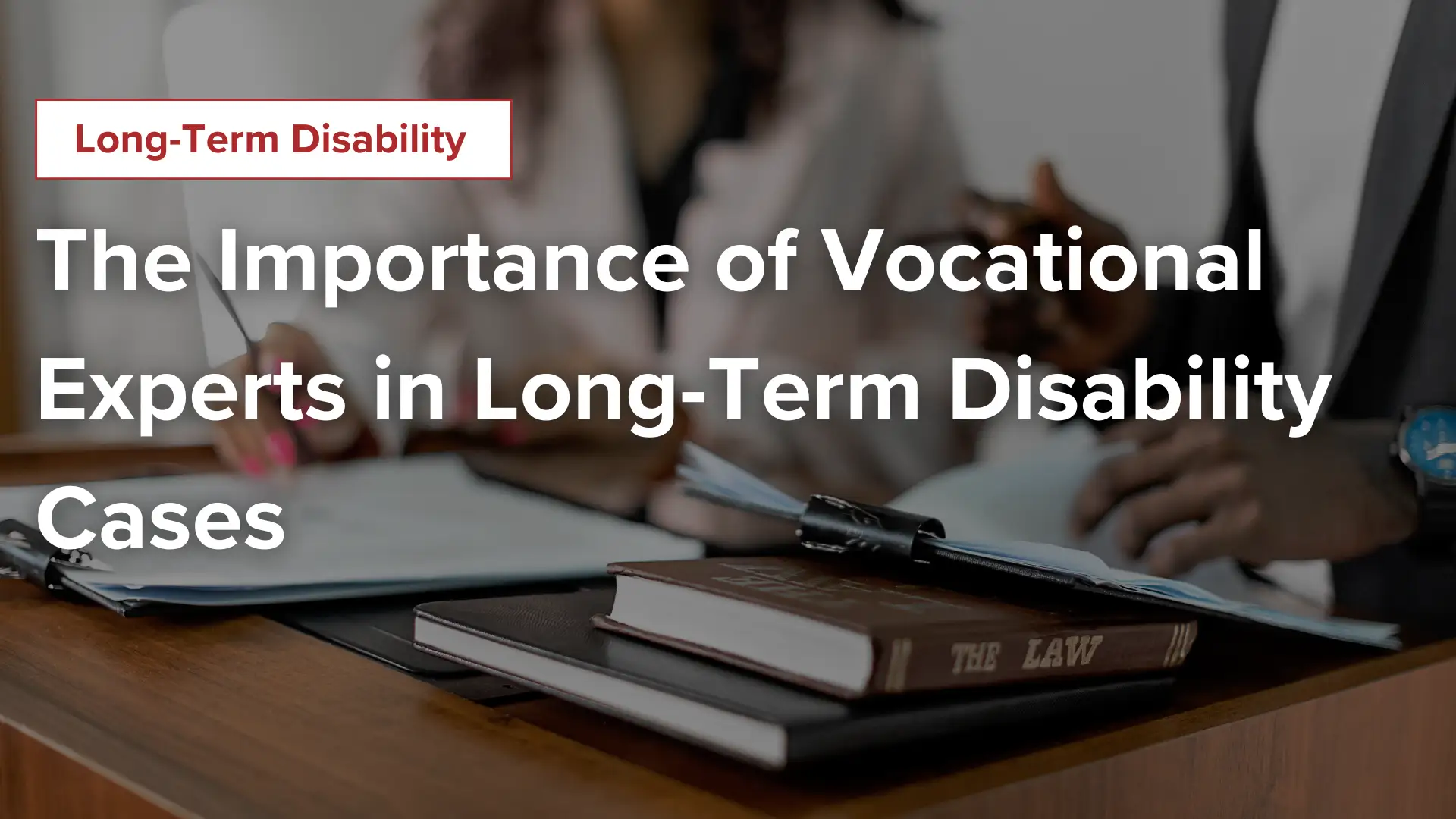Posted on Monday, September 8th, 2025 at 9:00 am

If you are filing a vocational expert disability claim in Philadelphia, it is essential to understand the role vocational experts play. These professionals often appear as key witnesses in long-term disability hearings. Their testimony can either support or challenge your ability to work, depending on how they interpret your physical or mental limitations.
Whether the issue involves sedentary work, transferable skills, or residual functional capacity, a vocational expert’s analysis can heavily influence the outcome of your case. Here’s what to expect from their involvement and why their input carries so much weight.
What Is a Vocational Expert in a Disability Case?
A vocational expert (VE) is a neutral party who provides expert testimony about your ability to work. They analyze whether your residual functional capacity (RFC) allows you to perform jobs in the national economy. Their insights typically include:
- Past relevant work: What jobs have you held in the last 15 years, and at what skill level.
- Transferable skills: What tasks can you still do based on your work history and RFC.
- Job market analysis: The availability of work suited to your capabilities.
The Social Security Administration (SSA) and private disability insurance companies rely on vocational experts during the claims process. VEs may testify about how your physical or mental limitations affect your earning capacity and your ability to maintain gainful employment.
When Does a Vocational Expert Appear in the Disability Process?
You will most likely encounter a vocational expert during a disability hearing before an administrative law judge (ALJ). At this stage, the ALJ wants objective insight into whether you can still work.
During the hearing, the ALJ or your attorney may ask the VE hypothetical questions. These hypotheticals outline physical or mental limitations and ask if jobs still exist that fit those restrictions.
For example, if a 50-year-old individual with an RFC for sedentary work cannot interact with the public, what jobs could they perform?
The VE uses tools such as the Dictionary of Occupational Titles and job outlook data from sources like the Bureau of Labor Statistics to answer. If the VE testifies that no jobs exist under your limitations, that can support your claim.
Some long-term disability policies also include vocational rehabilitation programs. In such cases, VEs may assist in designing training plans or assessing the feasibility of returning to work in another capacity.
Can a Vocational Expert Hurt Your Case?
Yes—and it is essential to prepare for that possibility. While VEs are supposed to remain neutral, their testimony may not always align with your claim. Here’s how it could negatively impact your case:
- They downplay your limitations. If they believe you can perform jobs that contradict your doctor’s assessment, their testimony can hurt.
- They claim job availability exists. Even if you can’t realistically maintain employment, the VE may list roles that technically exist in the national economy.
- They overemphasize transferable skills. The VE might argue that your experience qualifies you for similar work, even if it is not an actual match.
This is where an experienced attorney makes a difference. At Capitan Law, we know how to challenge VE testimony. We may cross-examine the expert, highlight inconsistencies, or submit alternate evaluations.
For example, if a VE says you can return to past relevant work, your attorney might present detailed medical records and job descriptions that show otherwise. The goal is to demonstrate why the VE’s conclusions do not hold up under scrutiny.
Steps to Take Before Meeting a Vocational Expert

Handling a disability claim that involves a vocational expert takes careful planning. Our legal team works with you to get ready for each step of the process, including:
- Gathering strong RFC evidence from your medical providers
- Preparing hypothetical questions that support your limitations
- Challenging VE assumptions with real-world job market evidence
- Highlighting how mental or physical impairments reduce your job performance
Do not walk into a disability hearing without a plan. With the right legal support, you can counter flawed VE testimony and increase your chance of a favorable outcome.
Get the Support You Need for Your Disability Hearing
If you are dealing with a long-term disability denial or getting ready for a hearing in Philadelphia, what a vocational expert says can play a big role in your case. Their view on what you can or can’t do for work often carries weight with the judge, sometimes even more than the medical records you’ve submitted.
An experienced legal team can help you prepare, challenge misleading statements, and present a stronger case. Call Capitan Law at (267) 419-7888 to schedule your free consultation.